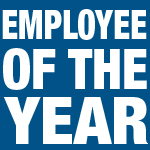By Ashley Turley
If you want to get noticed by potential employers, sending out your resume to anyone without tailoring it won’t cut it anymore. Not only are you now in competition with more job seekers, but chances are, your resume will first be filtered through a scanning program that will determine if an actual person will even see it. And, that means generic, cookie-cutter resumes are a thing of the past.
One of the best ways to differentiate and tailor your resume is to match it to the job description of each position you’re applying for. That doesn’t mean dropping in a few keywords here and there. You need to decipher what qualities an employer really wants and then show how you’ve demonstrated those qualities in the past. It’s especially important to do this with soft skills. Recent research from CareerBuilder showed that more than three-fourths of employers “believe that soft skills (less tangible skills associated with one’s personality) are just as important as hard skills (skills that are learned to perform a specific job function and can be measured).”
Describing how you have exemplified some of the soft skills listed in the job description can be difficult. So to help you get started, here are some of the most-sought-after soft skills identified by CareerBuilder and some examples of how you can actually show these intangibles on your resume.
Confident – Emphasize any leadership roles you’ve held, ranging from positions within formal workplace management or professional organizations, to group projects or committees.
Flexible – Point out your wide range of skills and your ability to interact with a variety of audiences, such as co-workers, vendors, customers, and the general public. You can also identify times you’ve been flexible with your time, such as working various shifts or participating in work-related activities on the weekends.
Organized – Prove you’re organized by citing how you’ve successfully juggled multiple priorities, simultaneously managed several projects, or integrated employee management into your existing workload.
Team-Oriented – Highlight some group projects you’ve been a part of, times you’ve worked with others outside your department, committees you’ve participated in, or your contribution to the achievement of a team goal.
Self-motivated – Draw attention to extra training or knowledge you’ve pursued, especially any that were motivated by your own desire to learn and not just a necessity for your job.
Positive Attitude – Demonstrate your positive attitude by pointing out the things you learned from even the most menial jobs, refraining from painting former employers in a negative light, and being optimistic in your objective statement, if you have one.
By taking the time to tailor your resume to each job description, you’ll get ahead of the competition, making it more likely you’ll get noticed and land an interview. You’ll show employers that you are perceptive, understand the job requirements, and are willing to put in extra effort. And, you’ll affirm early-on that the position, and the employer, are a good match for you.
Do you tailor your resume to each position you’re applying for? Which qualities and skills listed in the job description do you make sure to highlight in your resume? Join in the conversation by sharing in the comments section below.
Movin’ On Up is brought to you by Express Employment Professionals.







